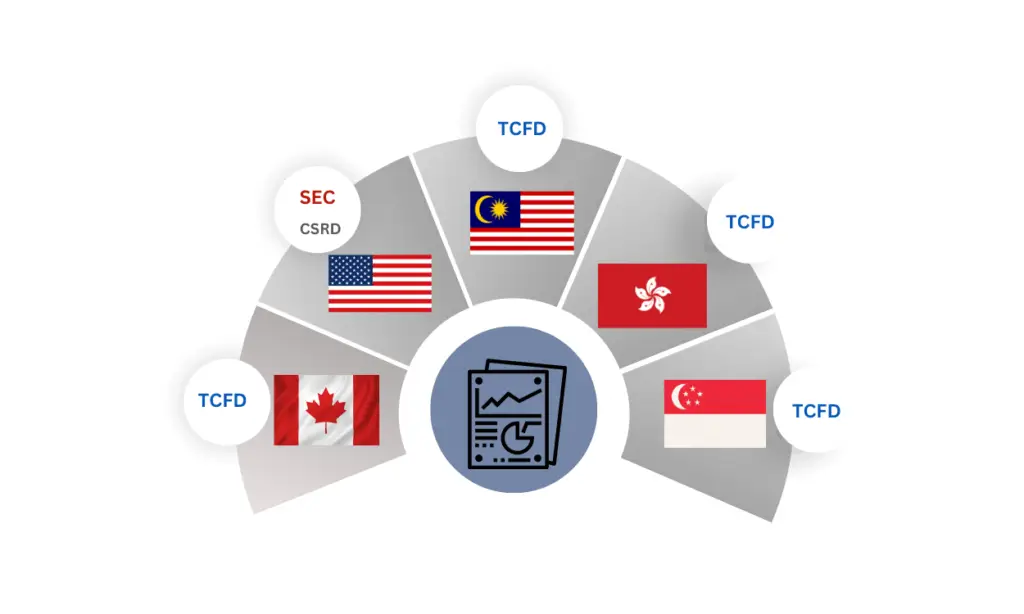 George Markezinis
George Markezinis

For more than 20 years, there has been a growing demand for information in the field of sustainable development from various stakeholders. The assessment of the ESG performance of companies and the making of ESG-oriented decisions by organizations and their stakeholders are becoming the norm because of the consistent implementation of the sustainable development agenda globally. As a result, investors are requesting data disclosure from more corporations.
ESG reporting pertains to the public disclosure of an organization’s environmental, social, and corporate governance data. The objective of the ESG report is to ensure transparency regarding the organization’s environmental, social, and governance (ESG) initiatives and assess its sustainability performance, thereby enabling stakeholders to make more responsible and well-informed choices.
The proliferation of governmental legislation requiring ESG reporting in recent years, as well as the increasing prevalence of mandatory ESG rules globally, have both supported the importance of ESG reporting.
The development of European Union sustainability disclosure guidelines aims to facilitate the decision-making process for firms about the disclosure of relevant data in their non-financial reporting.
In June 2022, the European Parliament, along with the European Council, reached a temporary agreement on setting required reporting criteria on environmental, social, and governance issues for large companies and listed SMEs from 2024 onwards.
On November 28, 2022, the European Union Council gave its final approval to the Corporate Sustainability Reporting Directive (CSRD), and the CSRD entered into force on January 5, 2023. Member states must implement the new rules after 18 months.
But first, let’s get to know what CSRD is.
What is the CSRD?
The Corporate Sustainability Reporting Directive (CSRD) is a new EU legislation that requires all large companies and listed SMEs to produce regular reports on their environmental and social activities’ impact.
Thus, all stakeholders, like consumers, policymakers, or investors, will be able to evaluate large companies’ non-financial performance. These companies are encouraged to develop more responsible business approaches to satisfy their stakeholders and enhance their overall performance.
It is the first time that the EU has defined a common reporting framework for non-financial data.
For the companies to comply with the rules, it is imperative that an independent auditor certifies the compliance of the sustainability information with the new standards.
The reporting of non-European companies must also be certified, either by a European auditor or by one established in a third country.
As part of the CSRD, the first set of draft European Sustainability Reporting Standards (ESRSs) was released. The ESRSs are much more demanding in scope and depth of disclosure requirements than the NFRD.
GRI has also welcomed the launch by the European Commission of a consultation on a Delegated Act that includes the first set of European Sustainability Reporting Standards (ESRS), which signals that the ESRS are on track to be available for use by companies in 2024, as set out in the Corporate Sustainability Reporting Directive (CSRD).
The Corporate Sustainability Reporting Directive (CSRD) is here to alter the way ESG reporting is being done so far. From 2024 onwards, almost 50,000 listed companies are about to start publishing their sustainability reporting (ESG Disclosure) annually and mandatorily, including non-EU companies with subsidiaries that operate within Europe or are listed on EU-regulated markets.
Beginning in 2024, companies will have to report on hundreds of metrics and targets. This will be a challenge due to the extra time and resources it will take for the required data to be collected and processed. Companies should receive the right information while relying on third parties, while at the same time, the number of disclosure requirements will increase, and the company will be required to step up in providing information.
Social issues, such as the way employees are treated, must be discussed openly both within the company and with partners in the supply chain. The CSRD’s “rebuttable presumption” assures that all information must be provided unless it is found to be unrelated to the business’s operation. Each reporting area needs evidence to back up the non-materiality assertion.
What are the next steps for EU companies?

USA
In the United States, there exists a comparable trend towards the augmentation of obligatory ESG reporting requirements, albeit with certain limitations. In May 2022, the United States Securities and Exchange Commission (SEC) put up a proposal:
“amendments to rules and reporting forms to promote consistent, comparable, and reliable information for investors concerning funds’ and advisers’ incorporation of environmental, social, and governance (ESG) factors.”
In contrast to the CSRD, the SEC has adopted a “bit by bit” strategy that emphasizes particular ESG issues rather than mandating the submission of broader ESG reports. The SEC specifically proposed cybersecurity and climate change reporting standards and was expected to also propose human capital and board diversity disclosure rules.
It seems unlikely that all CSRD reporting standards will be deemed to be equal to SEC guidelines. Some of them, like climate change, might be viewed as being equal.
As a result, US issuers that are subject to the new EU regulations may need to follow the CSRD and file a special report. The CSRD’s reach also goes beyond most voluntary reporting criteria now used by businesses in the US and other countries.
In the US, large, accelerated filers need to report by 2024 for fiscal year 2023 on all required disclosures, including GHG emissions metrics: Scope 1, Scope 2, and the associated intensity measure, but not Scope 3. Accelerated filers and non-accelerated filers must hold off until 2025 to begin reporting Scope 3 and Scope 3 for large, accelerated filers (fiscal year 2025).
Canada
Starting in 2024, financial institutions in Canada will favor using the TCFD framework for the publication of their climate disclosures. The regulation focuses on federally regulated financial institutions, but the government expects it to have an impact on Canada’s entire economy.
Malaysia
Since 2016, Malaysia has implemented a compulsory ESG reporting framework for all publicly listed firms. This regulatory initiative positions Malaysia as one of the leading nations in Asia to adopt such a disclosure mandate. Currently, there is a lack of a unified framework for ESG reporting. However, a proposal put up in March 2022 has recommended that all relevant corporations publish information in accordance with the TCFD guidelines.
Hong Kong
Hong Kong Exchanges and Clearing Limited (HKEX) gave listed companies advice on climate disclosures in November 2021. The purpose of guidance on climate disclosures is to help companies figure out how to deal with challenges caused by climate change and advise the public about them. All businesses that are listed on HKEX must follow this rule, either through mandatory disclosures or “comply or explain” clauses. The HKEX’s filing requirement and advice are based on what the TCFD indicates should be done. HKEX expects listed companies in important sectors, such as financial institutions, to report annually in line with TCFD by no later than 2025.
The Hong Kong Monetary Authority (HKMA) also released the supervisory policy manual for climate risk management. This manual gives financial institutions high-level advice on how to build resilience to climate change by taking climate into account in governance, strategy, risk management, and disclosure. HKMA wants financial institutions to share information according to the TCFD framework no later than 2025, with the first disclosures happening no later than the middle of 2023.
Singapore
The Singapore Exchange (SGX) announced climate disclosure rules in December 2021. These reporting rules require every issuer to prepare an annual sustainability report, and guidance is also aligned with TCFD. Reporting will become mandatory for companies in the financial, agriculture, food and forest products, and energy industries beginning in FY 2023. For companies in the materials, buildings, and transportation industries, reporting becomes mandatory beginning in 2024.
With ESG reporting being top-of-mind for so many leading organizations, understanding the complex process cannot be acquired with an epiphany.
At EcoSkills, we acknowledge how challenging it is for ESG leaders to equip themselves with the right skills to make fully informed judgments because of the wide range of demands from investors and stakeholders, as well as the lack of clarity surrounding the specifics of upcoming legislation and standards.
Companies require awareness to pick and choose among the available frameworks, rather than blindly completing everyone in the hopes that it will make them equivalent.
If you are looking to fully comprehend legislative reporting requirements to optimize and enhance your organization’s reporting process while also improving transparency and credibility, this is a great opportunity to navigate an EcoSkills certified course on ESG Reporting.
This is particularly relevant for anyone interested in developing an ESG report and communicating ESG performance to stakeholders. Unlock the power of your eco-skills and embark on your learning journey.
